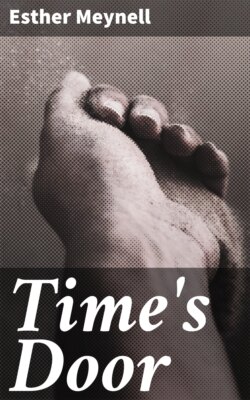Читать книгу Time's Door - Esther Meynell - Страница 11
На сайте Литреса книга снята с продажи.
VIII
ОглавлениеGiovanni’s first violin lesson from Paganini was aFIRST VIOLIN LESSON strange one. They had travelled all day by post chaise, and Paganini had slept most of the time, after giving the boy a large bunch of grapes and a long stick of bread, but eating nothing himself. Giovanni had eaten, looked out at the country moving past the window, and shyly studied Paganini’s sleeping countenance, where all the ravaged lines stood out upon the pale parchment of his skin in a writing the boy could not understand.
When they reached their destination for the evening Paganini ordered a generous meal, of which he partook hungrily—“Ho una fame da lupi” he said, as he satisfied that wolfish appetite—but seeing to it that Giovanni’s plate also was piled with the good pasty of macaroni stuffed with chicken. As he poured the wine Paganini’s thin hand shook so that he spilt it on the table.
“I am tired with this travelling,” he said, “It is well that I have not to play this night. But to spill wine brings luck, it is only the spilt oil that brings bad fortune.”
When they had finished their meal he flung himself down upon a sofa by the open window, watching the sunset preparing its impressive pageantry. Though early in the year, it was a close evening, and as the clouds increasingly piled themselves up, Paganini exclaimed, “We shall have a storm—let us go out and see it!”
Giovanni realised new and exciting freedoms. Gerda would have said “There is going to be a storm, let us take shelter.”
So Paganini and the boy went out of doors, turning their faces away from the little inn, and climbing through a scanty patch of woodland, emerged on to a small rock-strewn eminence. A great stretch of Italy lay below them, for the inn at which they had supped and were to spend the night was itself considerably elevated. Where two great boulders overlapped to make a kind of cave, Paganini sat himself down and pulled Giovanni to lean against his bony knees.
“Now we have a box at the theatre,” he said. “And the performance is about to begin!”
The sky by this time was shrouded in black clouds on whose dark surface anvil-shaped forms of an evil grey-white floated. Mutterings and growlings were all round them, and zig-zags of pulsating violet light took their eyes from them with startling frequency. As the storm increased in violence Giovanni felt an increasing excitement in Paganini—it trembled through his whole frame, he was like a stretched string on which the storm played a set of terrific variations. Giovanni was himself excited by the storm, by its grandeur and rage, but even more by his close contact with his master.
After a while the tempest and the lightning wandered away, a shimmering star showed in a patch of torn cloud. Then Paganini spoke for the first time since they had climbed the hill:
“They say the Devil teaches me. If this is the Devil”—he opened his hands to the scene below them, to the majestic broken masses of cloud and the appearing stars—“then yes! But I have an idea it is One greater than the Devil. But you have had your first lesson, child, as to what you must get from your fiddle.”
Giovanni’s imagination received an impress from that storm seen in the company of Paganini and from Paganini’s words which never left him.
